Do you have a question about the Nokia 3110 classic and is the answer not in the manual?
Instructions for safely powering on the device when wireless phone use is prohibited or may cause interference.
Emphasis on obeying local traffic laws and keeping hands free while driving.
Guidance to switch off the device near medical equipment in hospitals.
Advises following restrictions and switching off wireless devices in aircraft.
Instructions to not use the device at a refueling point or near fuel or chemicals.
Guidance on using only approved enhancements and batteries, and avoiding incompatible products.
Steps to ensure the phone function is on and in service for making emergency calls.
Details features sharing memory and how using one may reduce memory for others.
Explanation of security code, PIN codes, and PUK codes for phone and SIM card protection.
Information on obtaining and applying network configuration settings for services like MMS and email.
Guidance on downloading new content such as themes via network services.
Instructions on how to update device software using the Nokia Software Updater application.
Information on accessing the latest guides, downloads, and services via the Nokia website.
Guidance on how to find and contact local Nokia Care service centers.
Step-by-step instructions for installing the SIM card and battery into the device.
Instructions for correctly inserting a compatible microSD card into the device.
Procedure for connecting the charger and charging the device battery.
Identification of the phone's physical keys and important components.
Instructions on how to power the device on and off using the power key.
Description of the device's standby mode when ready for use.
Explanation of various icons and indicators displayed on the device screen.
Details on using quick access features and shortcuts available in standby mode.
Explanation of flight mode and its use in radio-sensitive environments.
Instructions on how to lock and unlock the device keypad to prevent accidental presses.
Step-by-step guide for dialing phone numbers, including international calls.
How to assign phone numbers to number keys for quick dialing.
Using voice commands to make phone calls by speaking contact names.
Procedures for answering, rejecting, or silencing incoming calls.
Description of available call options like mute, hold, conference, and transfer.
Explanation of traditional and predictive text input methods for writing messages.
Details on using the predictive text input feature based on a built-in dictionary.
Steps for accessing and navigating through the device's menu structure.
Instructions for sending and receiving SMS text messages.
Guidance on sending and receiving multimedia messages (MMS).
Information on creating and sending postcards with images and text via MMS.
Details on sending and receiving flash messages that display instantly upon reception.
Instructions for using the device's e-mail application to send, read, and retrieve emails.
Introduction to instant messaging (IM) services for sending short text messages.
Information on accessing and managing voicemail services.
Configuration options for text and multimedia messages, including delivery reports and message centers.
Instructions for saving contact names and phone numbers in device or SIM memory.
Options for managing contact storage, display, and memory status.
Methods for finding contacts by entering characters or scrolling through the list.
Procedures for editing contact names, numbers, text items, or images.
How to assign phone numbers to number keys for quick dialing.
Accessing service provider information numbers and viewing SIM card numbers.
Information on managing phone profiles to customize tones for different events.
Customizing the device appearance by selecting and downloading themes.
Adjusting ringtone and alert tone settings for the active profile.
Options for adjusting screen settings like wallpaper, active standby, and font color.
Procedure for setting the clock type, time, time zone, and date.
Customizing personal shortcuts for quick access to frequently used functions.
Using voice commands to operate device functions and make calls.
Introduction to Bluetooth wireless technology and its capabilities.
Steps for activating Bluetooth, pairing devices, and managing visibility.
Configuration options for General Packet Radio Service (GPRS) data connections.
Methods for synchronizing data with other devices, PCs, or servers.
Using the USB data cable for PC connectivity, printing, or data storage.
Settings related to call management, such as call divert and voice clarity.
Phone-specific settings including language, security, and welcome notes.
Options for configuring device settings required for various network services.
Security features to restrict calls, manage PIN codes, and set security levels.
Procedures for changing security codes, PIN codes, and barring passwords.
Settings for managing automatic or manual software updates received over the air.
How to view and manage folders and files stored in the Gallery.
Information on using memory cards for storing multimedia files.
Instructions for using the built-in camera to take pictures and record video clips.
Steps for activating video recording, pausing, resuming, and stopping clips.
How to view, play, and download media files like images, audio, and video.
Using the music player to listen to MP3 or AAC tracks downloaded or transferred to the device.
Instructions for using the FM radio, saving frequencies, and listening to stations.
Using the voice recorder to record speech, sound, or active calls.
Controlling sound output by amplifying or diminishing frequency bands in the music player.
Information on PTT channel types, creation, and status.
Instructions for connecting to and disconnecting from the Push to Talk service.
Procedures for initiating and receiving PTT calls, including one-to-one and channel calls.
Configuration options for PTT calls, login status, and default key functions.
Instructions for launching and configuring games included with the device.
Steps for accessing and launching Java applications available on the device.
Guidance on downloading new Java applications and games from various sources.
Setting, configuring, and managing alarms, including snooze functionality.
Instructions for managing calendar entries, notes, and views.
How to save and manage tasks within the device's organizer.
Writing, sending, editing, and deleting notes.
Using the device's calculator for basic arithmetic and trigonometric functions.
Information on using countdown and interval timers.
Using the stopwatch to measure time, intermediate times, and lap times.
Steps for configuring the device's browser settings and connecting to internet services.
How to navigate web pages using the device's keys and select items.
Saving frequently visited web page addresses as bookmarks.
Customizing browser appearance, including text wrapping, font size, and image display.
Managing browser security, including cookies, scripts, and download settings.
Information on security features, security modules, and certificates for secure connections.
Creating and using digital signatures with the phone's SIM card security module.
Using Nokia PC Suite for synchronizing data between the device and a PC.
Details about the rechargeable battery, its lifespan, and charging.
Guidelines for ensuring the use of authentic Nokia batteries for safety and performance.
Steps to verify the authenticity of a Nokia battery by checking its hologram label.
Information on the proper disposal of electrical products and batteries according to EU regulations.
Safety warning to keep the device and its enhancements out of the reach of small children.
Guidelines for the safe operating environment, including RF exposure.
Precautions regarding interference between wireless phones and medical devices.
Recommendations for maintaining separation between wireless devices and implanted medical devices.
Safety considerations when using wireless devices in vehicles, including air bag warnings.
Instructions to switch off the device in areas with potentially explosive atmospheres.
Steps on how to make an emergency call, emphasizing reliable communication.
Information on the device's compliance with radio wave exposure guidelines (SAR).
| Display type | TFT |
|---|---|
| Display resolution | 128 x 160 pixels |
| Display number of colors | 262144 colors |
| User memory | 9 MB |
| Internal memory | 16 MB |
| Flash card support | Yes |
| Rear camera resolution (numeric) | 1.3 MP |
| Networking type | EGSM, GSM |
| Playback formats | MP3, MP4, AAC, AAC+, eAAC+, WMA |
| Operating frequency | 900/1800/1900 MHz |
| USB 2.0 ports quantity | 1 |
| Multimedia Messaging Service (MMS) | Multimedia Messaging Service (MMS) is a standard way to send messages that include multimedia content to and from a mobile phone over a cellular network |
| Video compression formats | H.263, H.264 |
| Ringer type | Polyphonic |
| Polyphonic rings quantity | 64 |
| Product color | Black |
| Battery type | BL-5C |
| Talk time (2G) | 4 h |
| Battery capacity | 1020 mAh |
| Standby time (2G) | 370 h |
| Form factor | Bar |
| Personal info management (PIM) | Alarm clock, Calendar, Countdown timer, Notes, To-do list |
| Data network | EDGE, GPRS, HSCSD |
| Depth | 15.6 mm |
|---|---|
| Width | 45.7 mm |
| Height | 108.5 mm |
| Weight | 87 g |
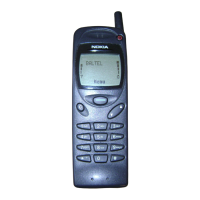
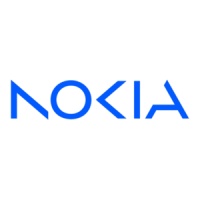
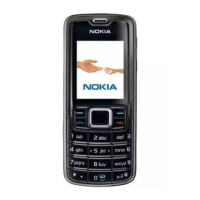





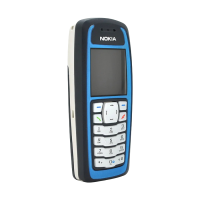

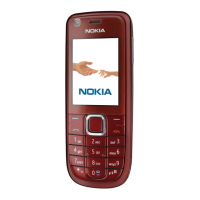

